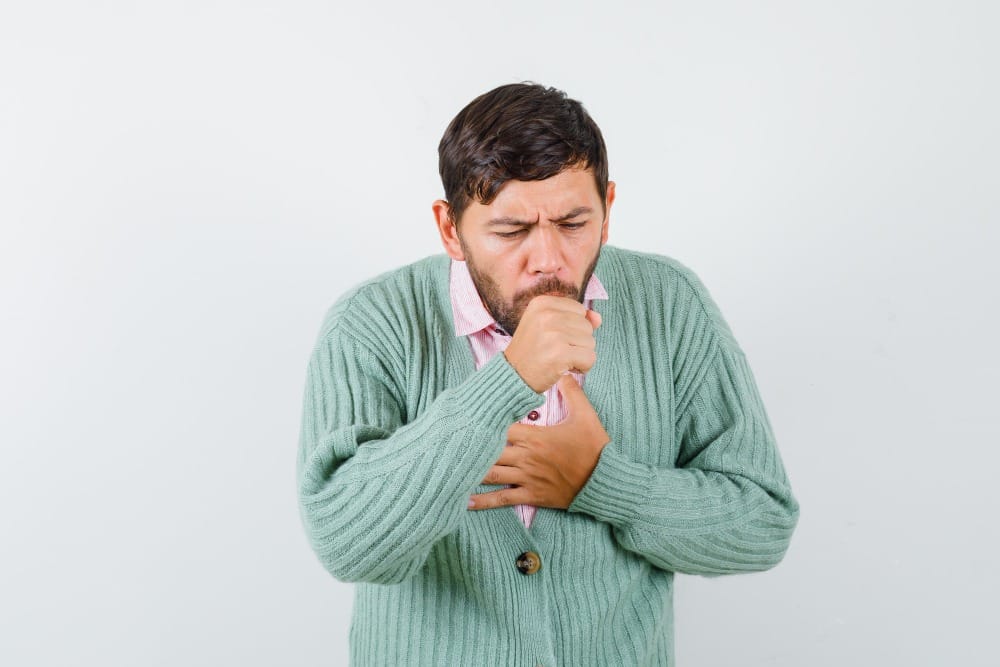The global health situation has been deeply impacted by different virus variants, with the Delta variant of COVID-19 emerging as one of the most alarming. This guide aims to provide an in-depth look at Delta virus symptoms, helping you understand the signs, recognize their significance, and take appropriate action to protect yourself and your loved ones.
What Is the Delta Variant?
The Delta variant is a mutation of the SARS-CoV-2 virus, which causes COVID-19. First identified in India and rapidly spread across the globe due to its high transmissibility. Its unique genetic structure makes it more infectious and potentially more severe than earlier strains of the virus. This makes recognizing Delta virus symptoms important for early intervention and treatment.
Why Early Detection Matters
Early detection of Delta virus can save lives. Identifying the symptoms early allows for:
- Prompt isolation to prevent the spread.
- Early medical intervention to manage symptoms.
- Reduced risk of severe complications.
Awareness is the first step in fighting with this highly contagious variant.
Common Delta Virus Symptoms
The symptoms of the Delta variant are similar to those of the original COVID-19 strain but can appear differently in some people. Here is a breakdown of the most commonly reported Delta virus symptoms:
1. Fever and Chills

One of the key symptoms of the Delta variant is a persistent fever often accompanied by chills. This is your body’s natural response to infection as it works to fight off the virus.
Example:
A person experiencing Delta virus might develop a fever that fluctuates but remains above 100.4°F (38°C) for several days. Chills may happen sometimes and often leave the person feeling very tired and weak.
2. Persistent Cough

Unlike the dry cough commonly associated with earlier COVID-19 strains, Delta virus symptoms often include a more intense and productive cough. This can be mistaken for bronchitis or seasonal allergies.
Example:
You might notice a cough that produces phlegm and worsens at night, disrupting sleep and causing discomfort in the chest.
3. Sore Throat

A sore throat is another frequent symptom of the Delta variant. It is often described as a scratchy or painful sensation that makes swallowing difficult.
Example:
Someone with Delta variant symptoms might first think they have a common cold but the intense and lasting sore throat makes it different.
4. Loss of Taste and Smell
Although less frequent with the Delta variant than earlier strains, losing taste and smell is still an important sign. It can happen suddenly and may continue even after other symptoms have gone.
Example:
A person might notice that their morning coffee tastes like water or that they can’t smell strong odors like garlic or perfume.
5. Headache

Headaches caused by the Delta variant are usually strong and ongoing much like migraines. They can last several days and may come with sensitivity to light or sound.
Example:
Someone experiencing Delta virus symptoms might report a pounding headache that doesn’t respond well to over-the-counter pain relievers.
6. Fatigue

Fatigue is one of the common symptoms that can be overwhelming. It is not just feeling tired but a deep exhaustion that makes it hard to carry out daily tasks.
Example:
An individual might struggle to get out of bed and feel exhausted even after a full night’s sleep.
7. Nasal Congestion and Runny Nose

These symptoms are often mistaken for seasonal allergies or the common cold. However, their presence alongside other Delta virus symptoms can be a red flag.
Example:
A runny nose and nasal congestion lasting over a week along with a fever or cough could indicate a Delta variant infection.
8. Gastrointestinal Issues
Symptoms like nausea, vomiting and diarrhea are less common but can occur in some individuals infected with the Delta variant. These symptoms are often more prominent in children.
Example:
A child with Delta virus symptoms may refuse to eat and experience frequent bouts of diarrhea, accompanied by other signs like a fever or fatigue.
9. Shortness of Breath
Shortness of breath is a serious symptom that requires immediate medical attention. It indicates that the virus is affecting the respiratory system, which could lead to severe complications like pneumonia.
Example:
Someone with Delta virus might notice difficulty breathing during physical activity or even at rest, accompanied by chest tightness.
Differences Between Delta Variant and Other Variants
Understanding how Delta virus differ from other variants is key to early detection:
- Higher Transmissibility: The Delta variant spreads faster, meaning symptoms may appear more quickly after exposure.
- Severity of Symptoms: Symptoms like fever, cough, and fatigue tend to be more intense.
- Younger Population Affected: The Delta variant has been shown to impact younger individuals more significantly, including those without pre-existing conditions.
When to Seek Medical Help
If you or a loved one experiences any of the following severe Delta virus symptoms, seek medical attention immediately:
- Persistent chest pain or pressure.
- Difficulty breathing or shortness of breath.
- Confusion or inability to stay awake.
- Bluish lips or face.
How to Manage Mild Delta Virus Symptoms at Home
If your symptoms are mild, you can manage them at home with the following steps:
- Rest: Allow your body to recover by getting plenty of sleep.
- Hydration: Drink fluids like water, herbal teas and clear broths to stay hydrated.
- Over the Counter Medications: Use pain relievers and fever reducers like paracetamol or acetaminophen to manage discomfort.
- Isolation: Stay away from others to prevent the spread of the virus.
Additional Tips for Recovery:
- Nutrition: Consume a balanced diet rich in vitamins and minerals to support your immune system.
- Light Activity: Engage in light physical activity like stretching to prevent muscle stiffness.
- Monitor Symptoms: Keep track of any changes in your condition and consult a doctor if symptoms worsen.
Preventing the Spread of the Delta Variant
Here are few preventive measures that are important to reduce the spread of Delta variant:
- Vaccination: Vaccines have been shown to reduce the severity of Delta virus symptoms and prevent hospitalization.
- Wearing Mask: Use a well fitted mask in crowded or indoor spaces.
- Hand Hygiene: Wash your hands frequently with soap and water.
- Social Distancing: Maintain a safe distance from others especially in high risk areas.
- Avoid Crowded Places: Stay away from large gatherings or poorly ventilated spaces.
Importance of Community Awareness:
Encourage friends and family to learn about Delta virus symptoms and ways to prevent it. Efforts from the whole community can greatly reduce the impact of the virus.
Conclusion
Delta virus symptoms can range from mild to severe but early recognition is key to managing the illness effectively. By understanding the signs such as fever, persistent cough, fatigue and sore throat—you can take immediate action to protect yourself and those around you. If you suspect you have symptoms consistent with the Delta variant, consult a healthcare provider for guidance. Stay informed, stay vigilant, and prioritize health and safety to combat this challenging variant.
By following preventive measures like vaccination, mask-wearing, and good hygiene, you can reduce the risk of infection and contribute to the overall fight against the Delta variant. Remember, knowledge and action are powerful tools in protecting yourself and your community.
Frequently Asked Questions
1. What is the newest COVID variant?
The newest COVID variant is called XEC. It started spreading in Europe and the U.S. in late 2024. It’s a type of Omicron variant, and experts are watching it closely to see how it spreads.
2. How to treat Delta variant symptoms?
Delta variant symptoms are similar to other COVID symptoms, like fever, cough, and fatigue. You can treat it with rest, fluids, and over-the-counter painkillers. If symptoms get worse, contact a healthcare provider.
3. Why is HDV called Deltavirus?
HDV, or Hepatitis D virus, is called Deltavirus because of its unique RNA structure. It needs the Hepatitis B virus to survive, which makes it different from other types of hepatitis.
4. What is the Deltavirus in COVID?
There’s no “Deltavirus” in COVID-19. The “Delta variant” is a strain of the COVID-19 virus, not a separate virus called Deltavirus.
5. Which COVID variant is the deadliest?
The deadliest variant can depend on factors like vaccines and health conditions. Delta was more severe, but new variants like XEC don’t seem to cause more severe illness than earlier strains.
Images By: FreePik





Pingback: Disease X Symptoms: Early Signs and Precautions